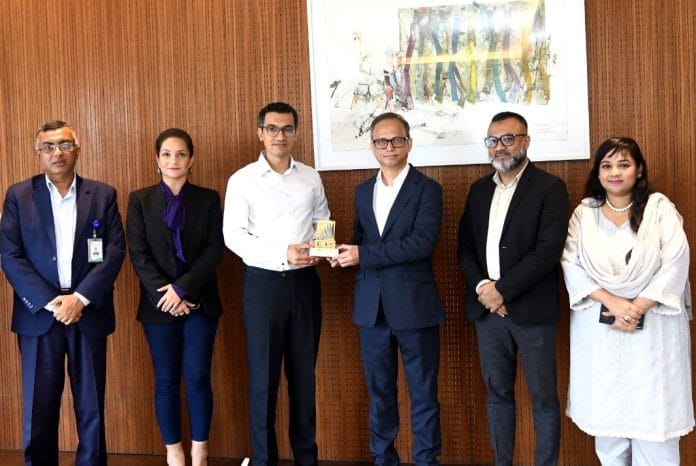The Bangladesh Garment Manufacturers and Exporters Association (BGMEA) has sought technical and financial support from the interim government to promote the installation of solar panels in garment factories as part of its broader sustainability agenda.
The proposal was made during a courtesy meeting between BGMEA President Mahmud Hasan Khan and Chowdhury Ashiq Mahmud Bin Harun, Executive Chairman of the Bangladesh Investment Development Authority (BIDA) and the Bangladesh Economic Zones Authority (BEZA), held on Monday, June 30, at the BIDA office.
During the discussion, the BGMEA delegation highlighted the sector’s ongoing efforts toward sustainability and circularity. They emphasized the urgent need to adopt renewable energy in the garment industry and called for a clear roadmap, as well as government-backed technical and financial assistance, to facilitate solar energy integration in factory operations.
The delegation also underscored the untapped potential of waste recycling within the ready-made garment (RMG) sector. To attract investment in this area, BGMEA leaders urged the formulation of supportive policies, tax exemptions, and regulatory oversight of informal labor involved in recycling processes. They requested BIDA’s cooperation in advancing these initiatives.
BIDA Executive Chairman Chowdhury Ashiq Mahmud Bin Harun congratulated the newly elected BGMEA Board of Directors for the 2025–2027 term and expressed his appreciation for the garment sector’s contributions to the national economy.
The BGMEA delegation included Vice President (Finance) Md. Mizanur Rahman, Vice President Vidya Amrit Khan, and Director Samiha Azim. From BIDA and BEZA, Executive Member (Investment Ecosystem) Md. Mokhlesur Rahman (Additional Secretary) and BEZA Executive Member Saleh Ahmed (Additional Secretary) were present.
BGMEA Highlights Industry Challenges
BGMEA President Mahmud Hasan Khan outlined the current state of the garment industry and said, “Global geopolitical instability, retaliatory tariffs imposed by the US, suspension of Indian transshipment, high bank interest rates, and frequent hikes in gas and electricity prices have become major challenges for the apparel sector.” He stressed that BIDA’s support is crucial for overcoming these challenges and facilitating further growth of the industry.
Land Request for SME Factories in Chattogram
Khan also proposed consolidating scattered small and medium-sized garment factories in Chattogram into an integrated garment industrial zone. He requested symbolic-priced land allocation from BIDA and BEZA in favor of BGMEA to establish such a zone.
The BIDA Executive Chairman acknowledged the proposal and said a joint committee involving BIDA and BGMEA would be formed promptly to draft an action plan within a week.
Requests for Easing Loan Classification and Bond Audit
The BGMEA team raised concerns over Bangladesh Bank’s loan classification policy, proposing an extension of the current three-month grace period to six months to help entrepreneurs avoid default classification during financial stress.
They also criticized the current bond audit process as time-consuming and harassing, creating daily operational hurdles for exporters. The association proposed outsourcing bond audits to 20 authorized firms to improve transparency and efficiency, requesting BIDA’s support in this regard.
Proposal for Dedicated Textile and Apparel Ministry
The BGMEA leaders urged the BIDA Executive Chairman to initiate efforts toward forming a separate Ministry of Textiles and Apparel, instead of keeping the industry under the Ministry of Commerce. In response, BIDA Executive Chairman Chowdhury Ashiq Mahmud Bin Harun praised the garment sector’s vital contribution to Bangladesh’s economy and assured that BIDA would continue to strengthen public-private partnerships and extend full support for the industry’s advancement.

